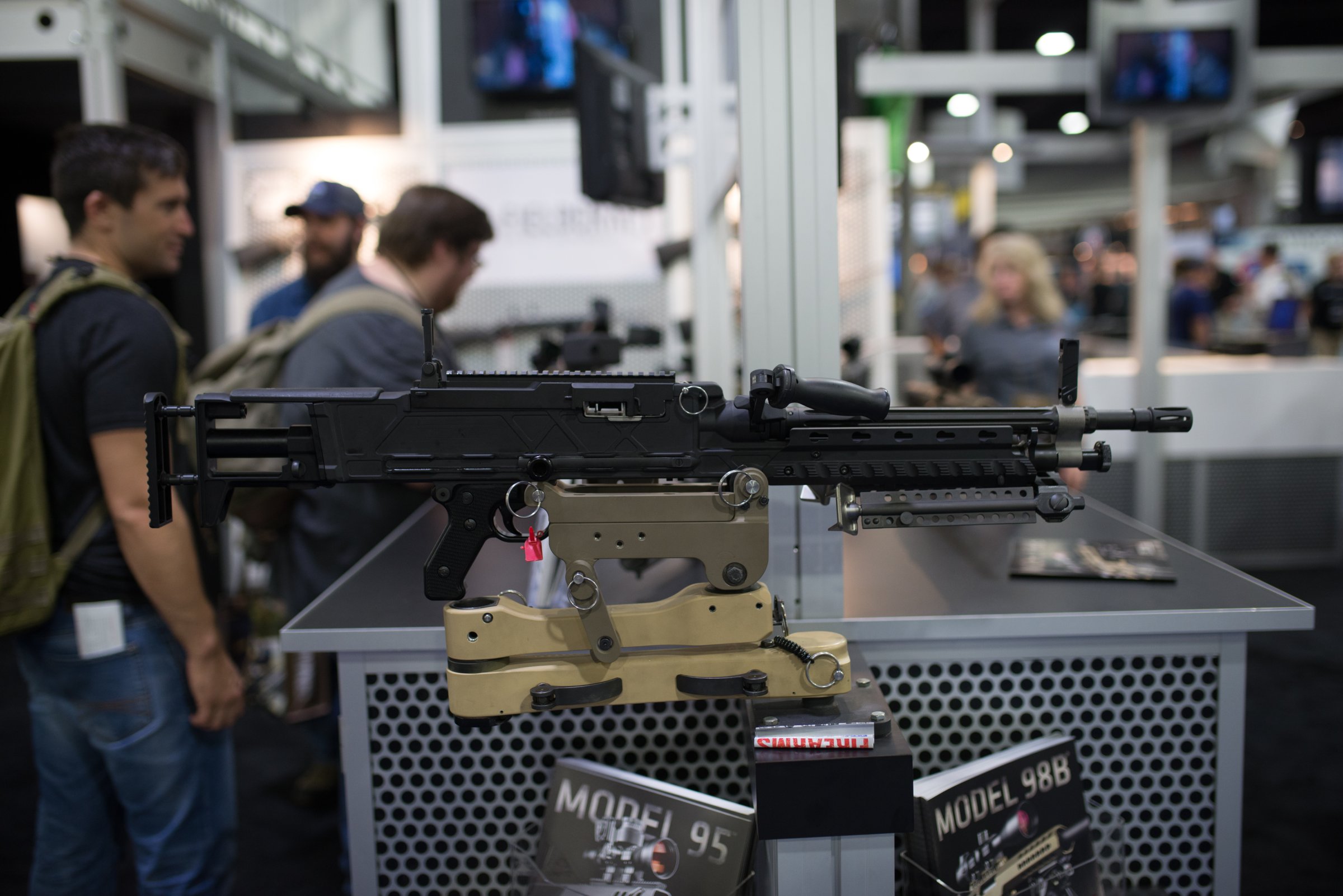
Gun-related injury rates drop by as much as 20% nationwide during National Rifle Association (NRA) conventions, according to new research.
The finding, published Wednesday as a letter in the New England Journal of Medicine, casts doubt on the idea that most of the U.S.’ roughly 67,000 gun injuries per year occur at the hands of inexperienced or untrained users, says Dr. Anupam Jena, one of the study’s authors and a professor of health care policy at Harvard Medical School.
Assuming that the more than 80,000 people who attend NRA conventions each year are likely seasoned gun enthusiasts, “the fact that you observe large relative reductions in firearm use during this brief period [is likely] because they’re either at the convention, or because venues where they might use firearms are more likely to be closed during the convention,” Jena says. (The study, however, couldn’t prove a cause-and-effect relationship.)
The researchers first calculated the number of firearm injuries that occurred during NRA conventions between 2007 and 2015, which they measured by emergency room visits and hospitalizations recorded in insurance claims. Next, they contrasted those figures with injuries that happened on the same days during the three weeks before and after the events. If a conference was held on a Monday through Wednesday in April, it was cast against Monday through Wednesday data for the three weeks immediately before and after the event. Doing so controlled for external factors, such as general weather patterns and the likelihood of people being at work, Jena says.
The difference was striking. Gun injuries overall decreased by about 20% during NRA meetings, Jena says. The drop was particularly pronounced among men, who are both disproportionately likely to own guns and to attend NRA events; people who live in the South and West, where gun ownership is common; and people who live near NRA conference venues, and therefore could presumably attend more easily. Injury rates in areas close to the conventions dropped by around 50%, Jena says.
Jena, who says he has no strong political stance on gun ownership, maintains that the study is neither anti-NRA nor particularly groundbreaking. Instead, he says, it provides more data about the relationship between gun control and firearm accidents.
“I would liken this to driving,” he says. “Even if you’re an experienced driver, you’re always at risk of getting in an accident and having an injury. Firearms are, just like cars, inherently unsafe — yet there seems to be a narrative out there that injuries related to firearms primarily occur in the hands of inexperienced and untrained users.” This study suggests that “that’s not an accurate view.”
More Must-Reads from TIME
- Cybersecurity Experts Are Sounding the Alarm on DOGE
- Meet the 2025 Women of the Year
- The Harsh Truth About Disability Inclusion
- Why Do More Young Adults Have Cancer?
- Colman Domingo Leads With Radical Love
- How to Get Better at Doing Things Alone
- Michelle Zauner Stares Down the Darkness
Write to Jamie Ducharme at jamie.ducharme@time.com